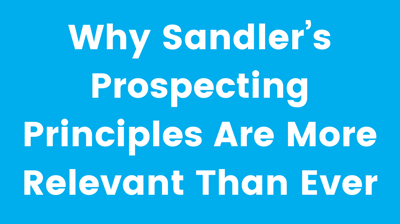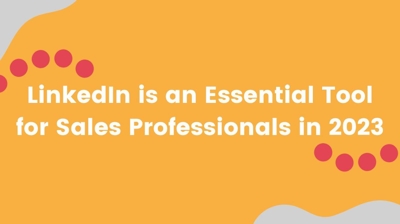Have you heard a prospect say this: "I need to confer with other managers here." Or "I need more time to decide." Or how about this: "Call me in about a month."
Of course, you have. If you're selling, you've heard these and a zillion other variations of the put off, and the postpone. And you've turned yourself into a wolfhound that pursues and pursues and pursues until you get your teeth into the meat. Come what may, you've been determined to close the sale no matter what. Nice intention. Poor approach.
Why a poor approach? Because these responses are just another way of saying, "No." And "no" 30 days from now is still the same as "no" today. If you settle for these responses, you're letting your pursuit instinct take the lead from your thinking mind.
The first thing to do when you hear "no," in any of its myriad forms, is to ask a question. For example: "I may be missing something here, but could you let me know why you want to postpone rather than decide now on the next step?"
If a prospect then tries to wriggle out of a straight answer or says some form of "no" response, this tells you he or she isn't going to budge. The message is: "I'm not willing to invest time, energy, or resources with you." And if that's the case, it's time to close the file. Whatever you agree to next will bounce you down into the sales limbo of hope. When you're there, nothing positive will happen for you, no matter what you say or do.
Does this mean that any and every prospect request for a postponement is a no? Not necessarily. You may be calling when a company is caught up in a crisis of some kind. Or a company is in the process of hiring a new executive who'll be in charge of reviewing new, business proposals like yours.
In situations like these, you may want to agree with a request to postpone. But your rules should be:
- You've found some realistic compatibility with your prospect. You and the prospect have at least agreed on this.
- No fluid calendars. If you agree to a postponement, the date of your next meeting should be pinned down to an exact date and time.
- No wishy-washy words from the client like "probably" or "maybe. Words like this smack of insincerity and real lack of follow-through.
If the conversation follows these rules, then, by all means, agree to a postponement. Just remember that anything less will slide you into the sales limbo of hope, where you'll waste your time and energy instead of doing your job of closing sales.
John Rosso
CEO and Best Selling Author of "Prospect The Sandler Way"





.2410220619473.png)
